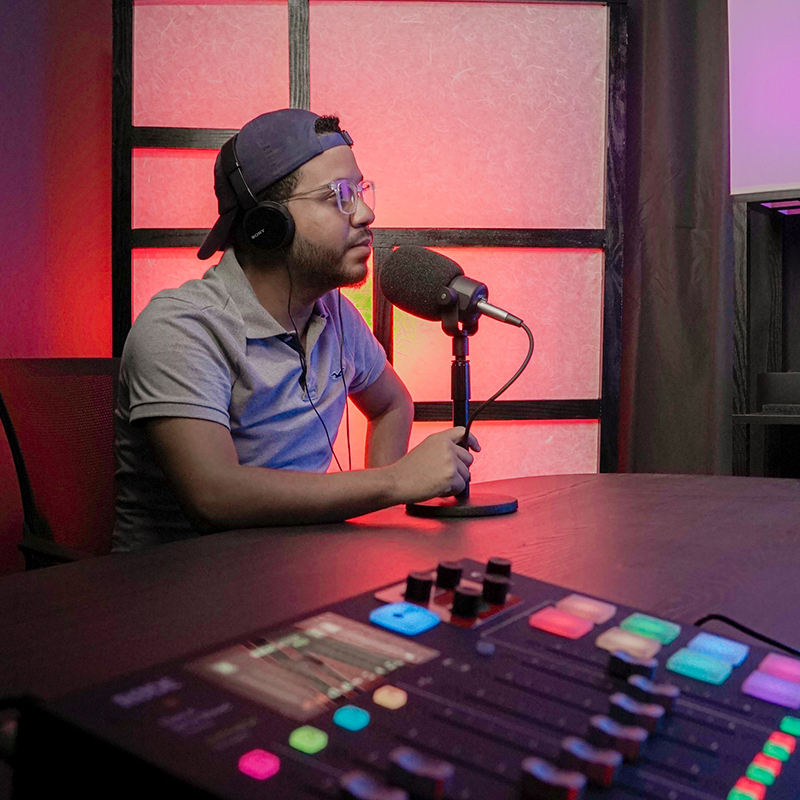How to Start a Podcast?
How to Start a Podcast: A Comprehensive Guide for Beginners
In today’s digital age, podcasting has become an increasingly popular medium for people to share their ideas, opinions, and expertise with a global audience. Starting a podcast can seem daunting for beginners, but it’s actually easier than you might think. In this comprehensive guide, we’ll walk you through everything you need to know about how to start a podcast, including choosing a podcast topic, required equipment, recording and editing, hosting and distribution, and promoting your podcast. We’ll also provide some tips on how to promote your podcast effectively and monetize it through sponsorships or ads. Whether you’re a hobbyist or aspiring podcaster, this guide will help you get started with confidence

Steps To Get Started With Creating Podcasts
Choose a podcast topic
The first step in starting a podcast is to choose a topic that you’re passionate about and that will resonate with your potential audience. Consider what you’re interested in, what expertise you have, and what topics people may be searching for. Brainstorm potential ideas and do some research to see what topics are already out there and what’s missing.Create a podcast script
While some podcasts are entirely improvised, others follow a structured script. If you decide to use a script, create an outline of your episode and include key talking points or questions. This will help keep you on track during recording and ensure that your podcast flows smoothly.Gather the necessary equipment
To record a high-quality podcast, you’ll need some basic equipment, including a microphone, audio interface, and recording software. You can start with a simple USB microphone, but if you want better audio quality, consider investing in a dynamic or condenser microphone, an audio interface to connect it to your computer, and editing software like Audacity or Adobe Audition.Record and edit your podcast
Once you have your equipment, it’s time to start recording your podcast. Find a quiet space to record and test your microphone levels before you begin. You can either record solo or with a guest or co-host. After recording, edit your podcast to remove any unwanted background noise or mistakes. You can also add music or sound effects to enhance your podcast’s production value. Now you may also want to transcribe your podcast for even better value you can offer your readers. Finding the time or outsourcing this to the right podcast transcription service is an important consideration.Choose a hosting and distribution platform
Once you’ve recorded and edited your podcast, you’ll need to host it somewhere so that people can listen to it. There are several popular platforms for hosting and distributing podcasts, including Anchor, Buzzsprout, and Libsyn. Anchor is a free option that also offers distribution to major podcast platforms like Apple Podcasts and Spotify.Promote your podcast
Now that your podcast is live, it’s time to start promoting it to your audience. Here are five tips to help you promote your podcast:- Create a website for your podcast: This will allow you to showcase your episodes and provide additional information about your podcast and its creators.
- Network with other podcasters: Connect with other podcasters in your niche and collaborate on episodes or cross-promote each other’s podcasts.
- Leverage social media: Share your podcast on social media platforms like Twitter, Facebook, and Instagram to reach a wider audience.
- Offer a giveaway: Encourage listeners to share your podcast by offering a giveaway, such as a free ebook or merchandise.
- Participate in relevant online communities: Engage with online communities related to your podcast topic and share your podcast with them.

Monetize your podcast
5 Key Tips For Starting a Podcast
1. Choose a topic you’re passionate about
Your podcast topic should be something you’re knowledgeable and enthusiastic about. This will help keep you motivated and engaged in creating content.
2. Invest in quality equipment
While you don’t need to break the bank on podcasting equipment, it’s important to invest in a good microphone, audio interface, and recording software to ensure your podcast sounds professional.
3. Plan your content
Creating a content plan or editorial calendar can help you stay organized and consistent with your podcast schedule. It also allows you to plan and create episodes in advance.
4. Research and learn from other podcasts
Listening to other podcasts in your niche can help you stay current with trends and get ideas for new topics or formats. It can also help you identify ways to differentiate your podcast from others.
5. Promote your podcast
Once you’ve created a few episodes, start promoting your podcast through social media, guest appearances on other podcasts, and reaching out to your network for support. promoting a podcast can help grow its audience and increase your visibility.

Conclusion
Starting a podcast may seem daunting, but with the right equipment, topic, and promotion strategy, anyone can do it. Follow these steps to start your own podcast and join the growing community of podcasters sharing their voices and ideas with the world.
Useful places to start
- Anchor: https://anchor.fm/
- Buzzsprout: https://www.buzzsprout.com
